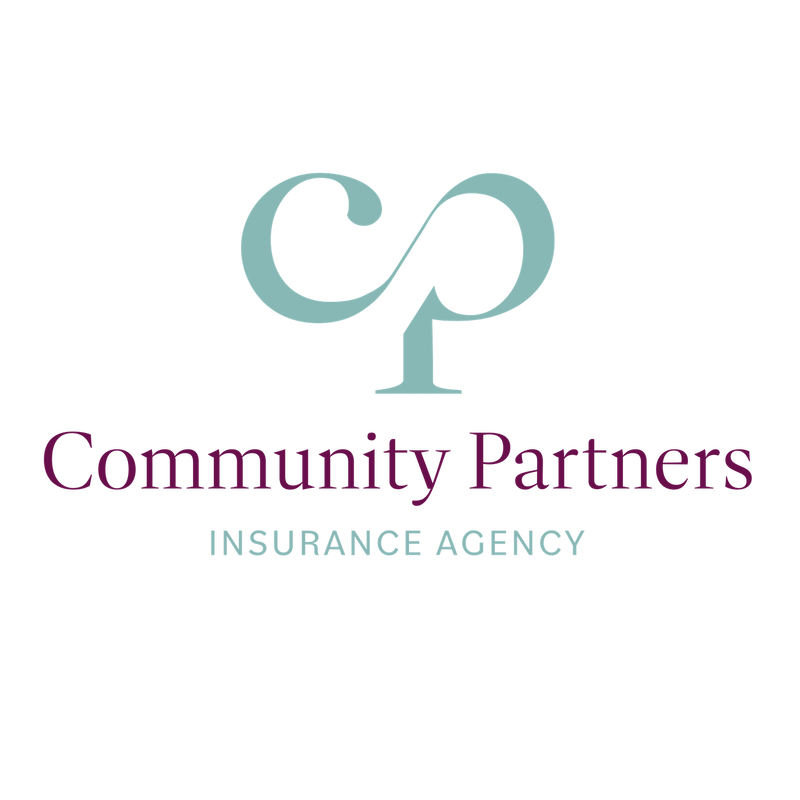|
By: Tarra Eshgh, CMCA®, AMS®, PCAM® - ST&R Portfolio Management It’s almost that time of the year – “the budget season!” Some may find the budget season to be the scariest and most stressful part of the year, and some may find it exciting where we get to plug in numbers and project an increase for next year’s annual operating expenses.
Budget preparation is one of the best parts about community association management – without adequate funding for each expense, a community’s day-to-day will be challenging to manage because a good budget leads to consistent growth of community’s finances and health. Please see below for the basic steps of budget preparation:
0 Comments
By: Dianne Donnelly – CMCA, AMS, Park Pointe Management Services Why does our community need a Reserve Study? If something major needs repaired or replaced, we’ll figure it out at that time, or hope we’ve been setting enough funds aside in our Reserve Account.
Reserve Study requirements are different from state to state. Some states require a reserve study be completed, how often it must be updated, and what percentage of funds, based on the study, must be in the HOA’s Reserve account. Idaho does not currently require a reserve study to be completed for a homeowner’s association, but don’t be surprised if that changes in the near future. Just because it’s not required does not take away from the importance of having one completed, and the enormous benefit to your community. As an elected Board Member, one of your most important responsibilities is Fiduciary Duty. In a Homeowners Association, that means a duty to make decisions and act in the best interest of the association, and its subsequent members. By: Dianne Donnelly – CMCA, AMS, Park Pointe Management Services Your community’s Annual Meeting is over. You love where you live and volunteered to run for the Board
of Directors, having a desire to serve the community and help it continue to be a great place to raise your family. When the votes were tallied, your name was announced as a new Board Member…What Now?!?! So many homeowners want to help in their community and each person has their own unique set of skills, and perspective, that can help your Homeowner’s Association tackle the business of the community. Backgrounds and experience in finance, construction, leadership, and organization are just a few great skills an HOA can take advantage of. Where do you start? A Board needs to start out by getting organized, whether it’s a brand-new Board taking over from a developer, or a couple new members being added to a current Board. Clear expectations and an understanding of each member’s role on the Board is vital. By Charter Construction Savvy owners realize that contractor selection is a crucial decision. Selecting the right contractor will help you get the quality you want, at the right price, in the right time frame and the chance to work with people you like and respect. In Part One of this article, we cover 6 key steps.
By Charter Construction Plumbing failures can occur from a variety of issues, including manufacturing defects, plumbing components that reach the end of their useful life and develop leaks, or something as simple as a nail or screw that penetrates a pipe hidden behind the surface of the wall. Regardless of the cause, it’s important to know how to limit the damage that can occur from flooding caused by a leaking pipe or failed fitting. The following are five tips to keep in mind in the event a leak does occur: 1. Turn off the water at the shut-off valve. The valve is typically located near the hot water tank or the furnace room. Commonly the shut-off valve has a red handle. In the event of flooding, if you are not sure which valve turns off the water, it is best to turn off every valve. 2. Call your Association Manager. If you have a Community Association Manager, place a call to their 24-hour emergency line. Most community management companies have an emergency response protocol and can quickly contact the appropriate business partners who will respond and address the initial damage or concerns created by a leaking pipe and/or the resulting flooding. 3. Call your Concierge or Building Maintenance Manager. If you live in a high-rise condo you will likely have a concierge or building manager assigned to your building. Know their phone number and keep it where you can easily find it and contact them immediately in the event of an emergency. They are often well equipped to respond to the situation and limit the damage that can be caused from unmitigated flooding in your unit. This is especially important in high-rise buildings where water leakage can travel to multiple floors and cause tens if not hundreds of thousands of dollars of damage.
4. Call the local fire department. If you can’t find the shut-off valve or reach any of the other resources we’ve mentioned you may have to call your local fire department. These professionals can often locate the water shut-off valve in a home, condominium, or apartment. 5. Call an emergency plumber. Most respond to pipe leaks 24-7. Once the leak is mitigated, most companies can work with you and your insurer to get the right scope of work put together and provide the construction services to get you back to normal as soon as possible. By Michael Madson, MGM ManagementThe biggest failure for HOAs originates from the lack of meeting basic responsibilities and expectations. If your association is experiencing issues, such as people who don’t pay their dues or seem to always violate basic rules, then it is common to look upward at your Board’s leadership. These concerns, if not addressed, may expose all homeowners to higher assessments or the possibility of a lawsuit. And, chances are an HOA’s failure is the result of a Board member’s inexperience, ignorance or failure to use resources or a personal agenda that made them run to be on the Board.
1. The expectation of collecting dues from all homeowners. Collecting association dues can be a daunting task, especially if some homeowners are reluctant to pay them. As a Board member, it is their duty to collect fees in a timely and professional manner, without fear or favor. This can potentially become contentious when the Board has to confront a long-time neighbor. High delinquency rates can impact your association’s cash flow and hinder your HOA. 2. The expectation to review and share the HOA’s financial records. There is an expectation of Board members to closely watch their association’s spending and to demonstrate fiduciary responsibility with their association. Far too often, associations experience fraud in some way or another. In order to prevent this, accounting for every dollar spent helps to assure homeowners that their money is going towards their best interest and prevents fraud amongst your association. To avoid the risk of financial mismanagement, a third party service is recommended and used as an unbiased service to meet financial expectations. By: Ryan D. Poole, Esq. – Smith Knowles, PC Community associations are typically obligated to ensure compliance with the governing documents and to take the lawful, reasonable, and necessary steps for enforcement. Steps can include courtesy notices, formal notices and possibly even a lawsuit. Determining the best steps to achieve a compliant community starts with assessing what is happening and whether it is a violation – and this starts with the existing governing documents and credible information about the suspected violation. Next, the desired outcome should be determined based on a variety of factors – legal mandate, process, time, expense, logistics, alternatives, etc. – and a thoughtful, balanced approach tends to be best. The process may often be as simple as providing some courtesy information and education to the community; and specifically to a non-compliant homeowner, perhaps in the form of a written courtesy-notice. Unfortunately, a non-compliant homeowner is not always responsive or reasonable, and the process may then necessarily get longer and more complicated (and more expensive).
By: Tiffanie Thompson, SentryWest Insurance Who is handling the funds in your community?
I hear all the time, “We have procedures in place, that would never happen to us”. While the majority of board members are committed and hardworking volunteers, it only takes one to behave dishonestly. Fraud can cause serious consequences for an HOA, including financial instability, increased fees for homeowners, deterioration of community amenities, and legal action against those responsible. The potential for fraud and theft grows when these responsibilities lie with one or two individuals on the HOA board, employees or other volunteers. But, with a few tweaks the HOA boards can quickly fill the cracks. By: Ann Marie Baird - Brighton Corporation There’s a point in every new community’s life where it must transition from the Developer’s control to homeowner control. Sometimes this can feel like a huge task. With a little planning and coordination, the passing of this baton can be seamless. The Developer’s role is to build the community by installing infrastructure and building out common and home lots. There’s a lot of information to transition so starting early and doing it over time is best. As the Developer, you should know when the turnover should happen, so you can be prepared. Review community documents and make sure they’re completed. Create committees like an advisory, ACC, event, and neighborhood watch. Getting people involved and serving helps them learn the information and creates history, shares knowledge, and shows transparency, which allows you to gain input and even face issues or concerns upfront. Openness and communication builds trust.
Hopefully, management is in place before the transition, but if not, once the transition happens, with an election of a homeowner board, work with their chosen management company to review the community records and documents. The management company will help new board members with getting organized, understanding their positions and roles, and keeping everything rolling, so as information and leadership changes, the day to day operations continue on. Knowing the process of the turnover and reviewing all the documents can be consuming, but it’s worth it for a smooth transition. By: Melissa Guyott, CMCA, AMS, PCAM - Ponderosa Community Management I’ve donated countless hours in various volunteer positions throughout the years. I’ve been a PTA president, served on professional councils, coached a little league fastpitch team and even did a tour as an elected city councilperson. In each of these scenarios, I had a personal agenda or spark of madness that led me to serve. With my own point of reference and almost two decades of non-profit Board management, I like to think I’ve learned a thing or two about what makes a good governing body tick.
Let’s say an involved and engaged homeowner decides to take the leap and serve for the Board. Bright-eyed and bushy-tailed, this new leader begins to learn about the business of running their association. In this fictional scenario, our new Association leader has even taken the time to read their governing documents, review contracts and ask questions about the association’s financial health. Our new community volunteer begins to become dismayed when their questions are answered with, “I don’t know. We’re waiting on our manager.” As more questions are posed, the same answer is returned, “We don’t know. We’re waiting on our manager.” |
Thank You SponsorsArchives
July 2024
Categories |
|
Heather Brownson
Chapter Executive Director (208) 918-4717 PO BOX 393 Meridian, ID 83680 [email protected] |






 RSS Feed
RSS Feed
